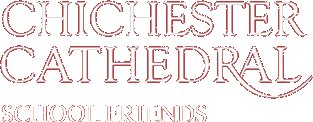Assessment
Parents attend a Consultation evening in October / November and a further evening in February/March to discuss their child’s phase of development and targets for the next term.
In the Summer term, parents receive a written report. This is the Annual Report to Parents. It highlights briefly what the child has achieved so far, states whether the child is expected to reach the end of year Age Related Expectations for that year and gives targets for future development including areas for the parents to support their child at home.
Moderation – To ensure all of our judgements are consistent, all teacher assessments are judgements made against a national standard. The staff always moderate each child’s achievements within the school setting and then a selection is discussed by staff in similar year groups across the Chichester Locality
Many schools are also identifying the assessment principles upon which this framework will be based, and as such these are listed below:
1. Assessment is at the heart of teaching and learning:
- Assessment provides evidence to guide teaching and learning.
- Assessment provides the opportunity for pupils to demonstrate and review their progress.
2. Assessment is fair and honest:
- Assessment is inclusive of all abilities.
- Assessment outcomes are conveyed in an open, honest and transparent way to assist pupils with their learning.
- Assessment judgements are moderated by experienced professionals to ensure their accuracy both across the school and within the Chichester Locality of Schools.
3. Assessment is ambitious:
- Assessment places achievement in context against nationally standardised criteria and expected standards.
- Assessment provides, through objective criteria, a pathway of progress and development for every child.
- Assessment objectives set high expectations for learners.
4. Assessment is appropriate:
- The purpose of any assessment process should be clearly stated.
- Assessment should draw on a wide range of evidence to provide a complete picture of pupil achievement.
- Assessment should demand no more procedures or records than are practically required to allow pupils, their parents and teachers to plan future learning.
- Ensures results are comparable with other schools, both locally and nationally.
5. Assessments provide meaningful and understandable information for:
- pupils in developing their learning;
- parents in supporting children with their learning;
- teachers in planning teaching and learning.
- assessment must provide information that justifies the time spent for;
- school leaders and governors in planning and allocating resources; and
- Government and the Local Authority.
6. Assessment in the EYFS
- In September the children are continually assessed after their arrival at school. From day one, the staff make on-going judgements about the children’s understanding. These judgements are then used alongside the reports from their previous settings to inform the Baseline Assessment. Staff record the children’s progress against the Early Learning Goals and then feed this information into an online database. This is then submitted to the Department of Education to be analysed against other schools and localities.
- Moderation – These judgements are always moderated by all the teaching staff in the setting and across the Chichester Locality with other EYFS staff.
- In May teachers have to make final assessments against the ELGs for the profile data. Each child is judged against the 17 statements and a ‘best fit’ assessment is made. The children are either ‘emerging’, ‘expected’ or ‘exceeding’. These assessments inform the year 1 teachers about the children’s next steps for key stage 1. The parents are also informed of the child’s progress in an annual report in June. This report also comments on the children’s characteristics of learning.



